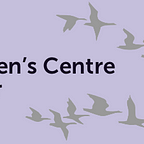We Need To Keep The Conversation Going: Tackling Loneliness Among Parents of Young Children
Hannah Parlett, from Coram Family and Childcare, examines the problem of loneliness among parents of young children and shares details of a funded research project investigating the impact of that loneliness.
In October 2018, Theresa May announced the launch of the Building Connections Fund; a partnership between Government, The National Lottery Community Fund and the Co-op Foundation to combat loneliness in local communities. This was a response to the seminal report published in December 2017 by the Jo Cox Commission which revealed that millions of people across the UK were experiencing feelings of isolation. Before her death, the MP for Batley and Spen started a crucial conversation: “young or old, loneliness doesn’t discriminate.”
Coram Family and Childcare were proud to receive support from the National Lottery to understand the impact of loneliness on parents of young children, and find ways to help. The Parent Champions for Community Connections project will support eight groups of local parents to work together to combat loneliness while their children are young. Our first step was to conduct hear from parents about their personal experiences of isolation.
The general picture is cause for concern. Our findings are based on an opinion poll of 529 parents and five focus groups with parents of young children. Over half of parents (56%) with children under five feel lonely: 21% feel a lack of companionship, and 76% feel left out at least some of the time. Even though anyone can feel lonely, mothers are twice as likely as fathers to say that they often feel left out. Age also plays a role: younger parents (18 to 24) are more likely to report a lack of companionship than parents aged 25 to 34. Parents on the lowest incomes are more likely to feel isolated than those with the highest incomes (33% vs 16%).
Parents told us about a range of barriers in accessing local activities designed to bring parents together. One mother of a child with autism told us that she could no longer attend a session in a library because it had introduced automatic doors, meaning that her son could potentially run out into the road. Many said that stay and play sessions can feel ‘cliquey’ and newcomers often feel that they are the odd one out in a crowd of parents who already know each other.
Some of the steps to combat parents’ loneliness are easy. Accessibility of libraries and children’s centres must be a priority. The enormous impact of friendly gestures such as a simple ‘hello’ cannot be overestimated. Speaking at the annual Margaret Horn debate in November 2019, Claire Harding (Head of Coram Family and Childcare) reminded attendees that walking into a crowded room of parents and professionals can be an intimidating prospect: “Welcome everyone at the door and remember that people, especially parents, prefer being told what to do. Shoes go there, take a seat on the floor here. Nursery rhymes start in 5 minutes.” These small acts of inclusion are behaviours that everyone can practice, whether it is the group’s leader or another parent attending the session; everyone can play a role in addressing parental isolation.
We hope that this research will contribute to the wider discussion about loneliness currently emerging out initiatives across the UK. The research marks the beginning of a longer ongoing project of forging meaningful connections between parents via the Parent Champions programme, our well-established peer-to-peer mentoring model. However, if our initial findings have demonstrated one key message, it is that often the first step in combatting loneliness is simply to start a new conversation.
Hannah Parlett has been Membership and Communications Assistant at Coram Family and Childcare since May 2019. She works closely with the National Association of Family Information Services (NAFIS), the only national membership organisation supporting local authorities to deliver high quality information and advice to families. Hannah is also a first-year PhD candidate at the Centre of Film and Screen at the University of Cambridge. Her current research focuses on the depiction of gender and social class by British and American directors since the 1970s through the lens of feminist philosophy and psychoanalysis.
